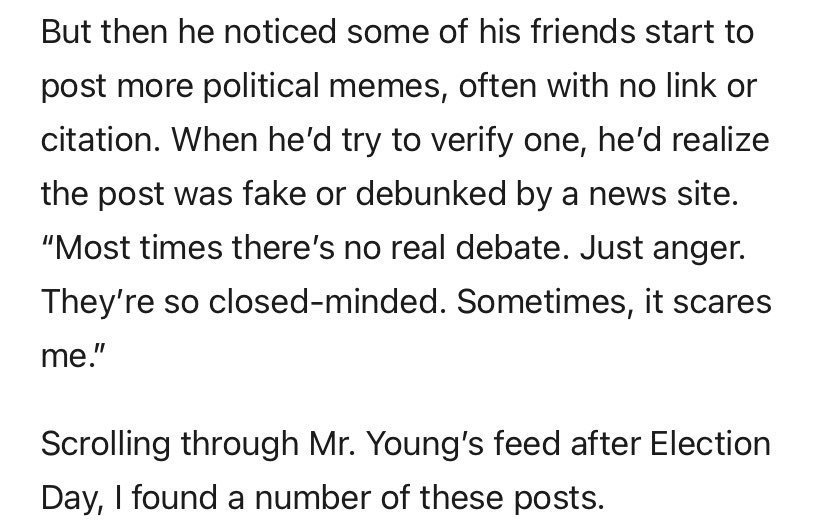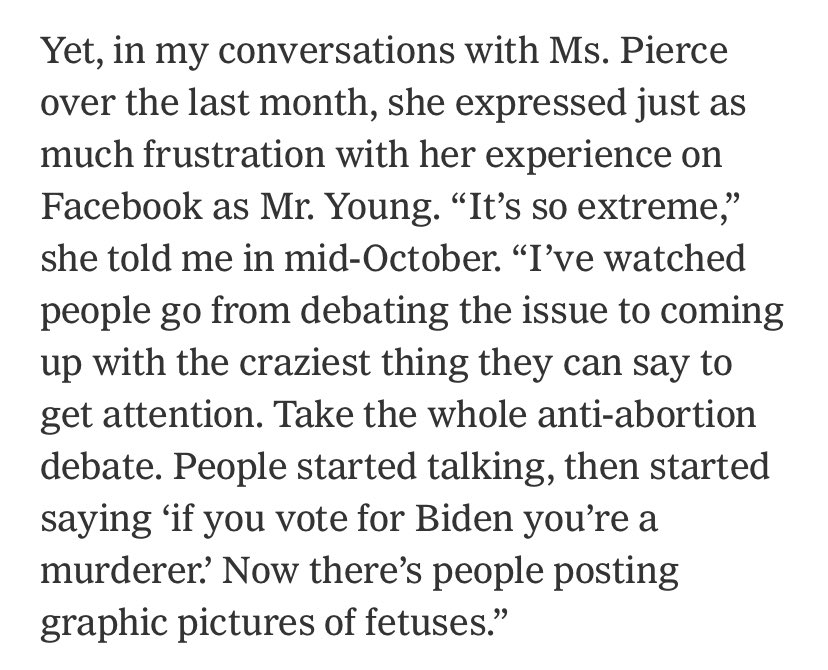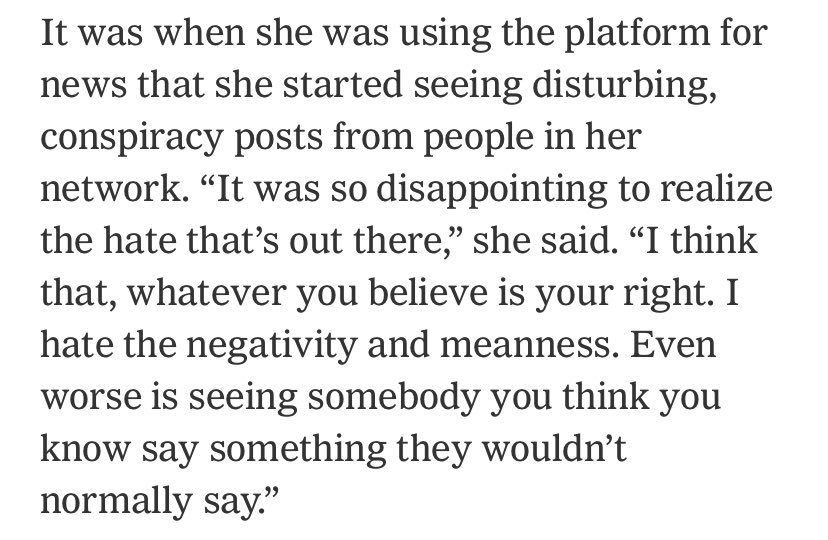This is a jarring look at the complete nightmare Facebook’s news feed has become for many of its users, especially Boomers, and for the body politic. https://www.nytimes.com/2020/11/24/opinion/facebook-disinformation-boomers.html">https://www.nytimes.com/2020/11/2...
Nothing here is new or shocking, exactly. But viewing Facebook through the eyes of ordinary, centrist Boomers and seeing what a toxic stew of hate and lies it is even for them—it’s clear our information system is in shambles, & hard not to wonder how much of that FB has wrought.
As recently as a decade or two ago, the people in this story probably would have gotten most of their news from the local morning paper or nightly broadcast TV. Now they log onto Facebook for updates from their friends & kids, and see QAnon memes and graphic abortion photos.
Obviously it’s way too easy to pin all this on Facebook. Cable news laid a lot of the groundwork. The right has waged a decades-long campaign to discredit mainstream media and build its own news apparatus. Social change, global capitalism, and inequality have fueled resentment.
If Facebook suddenly ceased to exist, other social media apps would quickly fill the void. Perhaps they’d be somewhat better, but there’s no guarantee. And yeah, Facebook has some positive uses too. Research on its societal impacts is murky and mixed.
But I think the history books will look back and point to Facebook—and the other algorithmic feeds it spawned—as a significant factor in tearing us apart.
That is, if we’re even still capable of agreeing on what the history books should say—which at this point seems doubtful.
That is, if we’re even still capable of agreeing on what the history books should say—which at this point seems doubtful.
If there& #39;s a bright side, it& #39;s that the corporate media gatekeepers that FB displaced had glaring blind spots & ugly biases. Social media has helped to unleash rapid social progress.
I do worry about how defensible those gains will prove to be, long-term, in a post-truth society
I do worry about how defensible those gains will prove to be, long-term, in a post-truth society
By "defensible" I mean "sustainable" or "able to be protected," not "justifiable." The social gains of the past two decades are well-justified, but the erosion of shared reality and rise of "us vs. them" thinking threatens to undo them, as Trump showed.
To put it another way: It is very hard to justify anything to people who have been conditioned to hate you and everything you stand for and disbelieve every word you say.
And, to the extent we’re susceptible, that is how social media seems to be conditioning us.
And, to the extent we’re susceptible, that is how social media seems to be conditioning us.
This analysis of people’s FB feeds by @laurahazardowen paints a much less scary picture than @cwarzel’s and should be read alongside it imo. I think there are big limitations to both approaches, but together they probably give a more balanced view than either by itself. https://twitter.com/laurahazardowen/status/1331622889183977472">https://twitter.com/laurahaza...
There’s a temptation to latch on to one or the other but both can be true: The top stories in most people’s news feeds can be largely apolitical, and yet the full experience of using Facebook for many can come with exhausting amounts of enraging and misleading political content.

 Read on Twitter
Read on Twitter







